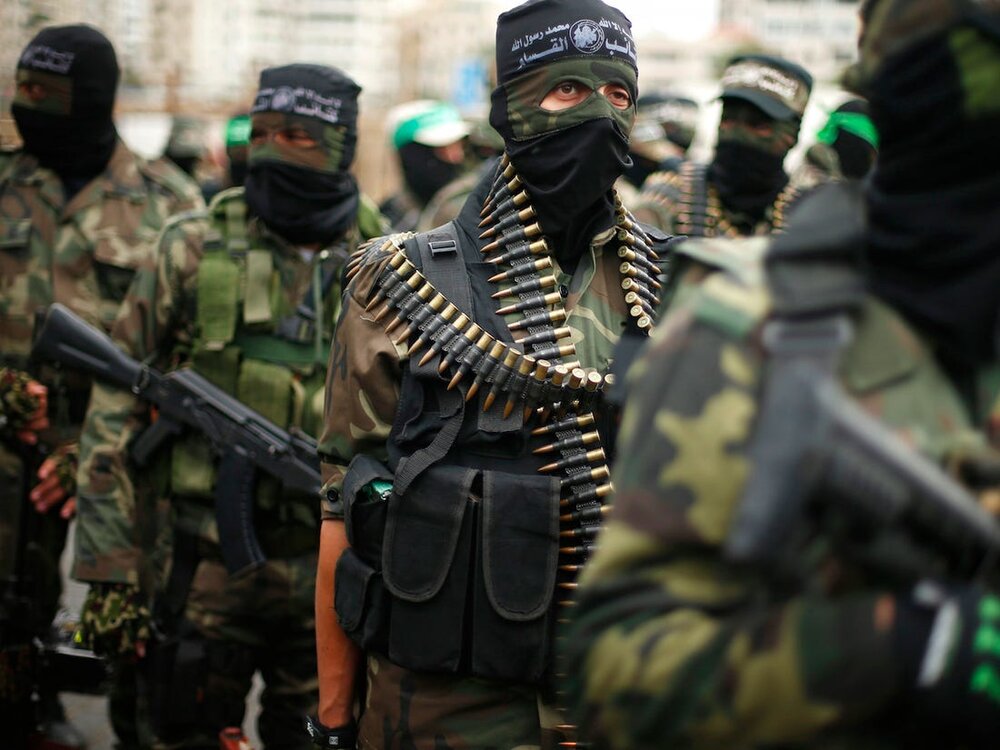Did Hamas and Zionism secretly line up against Iran’s allies in Gaza?

WEST SIBERIA/ TYUMEN - Hamas silence over the November aggression of Zionism during which the leaders of the Palestinian Islamic Jihad in the Gaza Strip and Damascus were killed, suggests certain thoughts about the conformism and apathy of the ruling party in the Gaza Strip.
This is not about secret agreements between the invaders and Hamas, but rather about a secret alliance against the leading Palestinian forces seeking to fight the colonialists. Otherwise, how to explain a number of facts, such as the non-interference of the military wing of Hamas - the Al-Qassam Brigade in the fight against the Zionists, on the side of the Al-Quds Brigade (military wing of the Palestinian Islamic Jihad)? Different theories go on this score, some write about the alleged "reluctance of Hamas to increase the scale of the confrontation, which will aggravate the situation in the Gaza Strip." Others indicate that, with their silence, “Hamas showed Zionism about the existence of a strong ally in Gaza,” alluding to the military potential of the Palestinian Jihad, which carried out a series of shelling of Zionist positions in response to terrorist attacks by the invaders. But the opinions of political scientists loyal to Hamas fade against the backdrop of one important point, the killed figures of the Palestinian Jihad, A - possessed considerable weight in the Gaza Strip (martyr Abu al-Atta), B - had a clear pro-Iranian orientation. For its part, Hamas is gradually losing credibility in Gaza due to a move away from direct resistance to the enemy, has moved away from Iran amid crises in Syria, Iraq and Yemen to the camp of enemies of the Islamic Republic, which automatically created and polarized the balance of forces within the blockade Sector between Hamas as a political party and resistance factions oriented to Tehran, where the key figure is precisely the Palestinian Islamic Jihad (PIJ). Remembering the hero, the martyr Abu al-Atta, he could be described as a strong national leader who possessed charisma that overshadowed giants such as Ismail Haniya and Yahya Sinwar. His oratory, political skills, commitment to the ideology of his movement in addition to military talent, made him a powerful politician who, in the event of open elections of any format in the Gaza Strip, could easily squeeze influential officials from Hamas.
Speaking of Iran, there are obvious traces of the provocations of Zionism. Over the past 40 years, all the fears, phobias and complexes of the invaders are associated with the Islamic Republic and its allies. PIJ plays one of the key roles in Tehran’s foreign policy, the Palestinian resistance movement is ideologically connected with the Islamic Republic of Iran and in many vectors of its policy coordinates with the IRGC. Accordingly, attacks on PIJ are an element of the fight against the Iranians, which Zionism did not hide during the latest conflict in Gaza. Moreover, the killings of the “pro-Iranian” PIJ politicians according to the plan of Zionism should open the way to power within the movement for those who seek to join the "Axis of Conformism and Cooperation" with radical cosmopolitans, we are talking about the Qatar-Turkey-Saudi Arabia-Egypt alliance.
P.S. Hamas has previously been noted for anti-Iranian behavior by banning the movement of Al-Sabirin in Gaza. Al-Sabirin is a PIJ breakaway organization that positions itself as “followers of the ideas of the martyr Fathi Shakaki” with reliance on Iran. Dependence on Qatar, the inability to strategically assess the situation, the gradual ideological degradation and the absence of a tendency to develop, gradually transforms the once vivid Islamic resistance movement into a pale shadow of itself. Hamas often criticizes Fatah, but in its political moves, it increasingly resembles its long-standing opponents.
